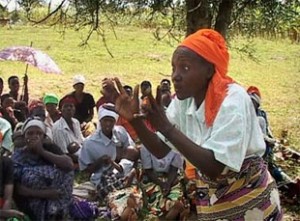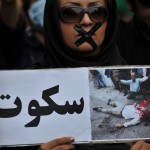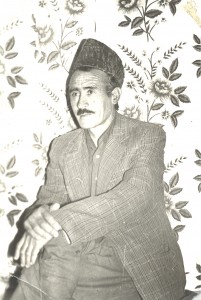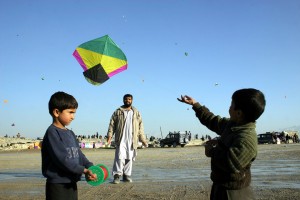“My mother frequently told us the story of [...]]]>
Khaleda, 22, has no recollection of her father. She was only four when he was decapitated by a rocket in a war that reduced Kabul to rubble, and forced tens of thousands of people to flee the city. What follows is a testimony. **
“My mother frequently told us the story of how our father was a mechanic with his own shop in Bagh-e-Zanana in 1994 when the civil war was at its peak,” Khaleda says speaking also for her younger sister and brother. Her mother sits listening by her side. “The Hezb-e-Wahdat and Shuar-e-Nezat were fighting for control of Kabul. Shrapnel from a rocket sliced his head off. My mother says when they brought his body home, there were only pieces.”
The Hezb-e-Wahdat was a party of the Shia Hazaras, while Ahmad Shah Massoud, who went on to fight against an alliance of militias and eventually the Taleban, led the Shuar-e-Nezat. He was assassinated on Sep 9, 2001, two days before the World Trade Centre bombing in New York that finally forced the US and NATO to intervene in Afghanistan allying with Massoud’s forces.
Khaleda’s mother who is 52 cannot say whose rocket killed her husband. Shopkeepers from the area brought what they could find of his body at noon the following day. “His body was torn in pieces,” she suddenly blurts out. “It is not good to talk about it. It was the anger of God that came on us and left us without any support,” she adds before lapsing into silence.
The room falls silent for a while until Khaleda picks up the thread of our conversation. She says the remains of her father’s body were buried according to Islamic customs. But her mother kept dreaming of her husband. He kept asking her to “bring my clothes”. She consulted a soothsayer who told her the body was buried without the head.
Family members scoured the area where he was killed for days. The head was eventually found, and buried. “Thereafter she never dreamt of our father again,” says Khaleda, a student in the Faculty of Journalism at Kabul University.
Hard times
Khaleda’s family has always lived in Kabul’s Taimani neighbourhood. When civil war lashed the city it was considered safer than most other parts.
Khaleda says she knows from her mother that the war was in the west of the city. In 1996, the Taleban stormed Kabul, and imposed the Sharia. Massoud, who was defence minister in the ousted government, withdrew to the Panjshir Valley and began a military campaign to oust the Taliban.
With her father’s death the family lost their only breadwinner. Her mother, then 34 years old, had never worked. “In the beginning we were using the money left by father for our expenses, but when my brother got to class five, he had to work and study; we were barely making do,” she recalls. Her brother, who is younger than her, started as a street hawker. “He was very young, and nobody was willing to take him on as an apprentice,” she recalls. “The work was hard.” Eventually he opened a roadside shop for a few years before becoming a shoemaker, which brings in more money.
“My brother apprenticed with our neighbour. He was able to learn shoemaking within two months and his master gave him some salary as well,” says Khaleda. “Soon he started working from the house, and we would all help him.” The shoes were sold in the bazaar, she adds.
Meanwhile, Khaleda’s mother also became self-employed. She became a seamstress, making small things on her hand sewing machine to sell in the market. She was determined to fulfill her late husband’s only wish: to see his children educated.
Khaleda and her siblings did not miss school for even a day for lack of money. “She was trying so hard lest we went astray. Conditions were very bad,” says Khaleda looking at her mother who nods in agreement.
Her mother kept working till her brother and she finished school, says Khaleda. “Then the trouble for my mother decreased,” she adds. For an instant a tiny smile flickers on her mother’s face, only to fade away.
Neither would talk about the harsh life under the Taliban. Women were not allowed to work; girls were pulled out of school. Women were banned from dealing with male shopkeepers. They could not go outside their home unless they were accompanied by a mahram, who could only be a close male relative like a father, husband or brother.
Living on her own with young children must have been terrifying for Khaleda’s mother. But both mother and daughter refuse to be drawn into a conversation, dwelling instead on the point their world disintegrated: the death of Khaleda’s father in the civil war.
One night bombs dropped from the sky, killing 16 members of Ismail’s family. “The war took [...]]]>
War has ripped apart a majority of families in Afghanistan. Those who were lucky migrated to the West. Uncle Ismail’s family lies buried in a graveyard in Nangarhar. What Follows is a testimony**
One night bombs dropped from the sky, killing 16 members of Ismail’s family. “The war took some people to Europe and America, but it destroyed my family,” Ismail, who is universally addressed as “uncle”, says. From Haska Mena in Nangarhar, he says his parents insisted he go to the only school in the district, in Shpole Baba. The times were tumultuous. The Soviet Union had invaded Afghanistan, and Babrak Karmal was installed the leader of the government in December 1979.
The new government’s opponents set fire to Ismail’s school. He remembers going up to the roof of his house to watch the flames. “The fire destroyed my hopes of studying, and being a great man in the future,” he sighs.Ismail started to help his father on the land. “People in our village were surprised that I switched so quickly from being a school boy to a farm worker,” he remembers, a soft smile on his face.
But the war was to change things again for Ismail. He remembers his father and he were ploughing the fields when six Soviet helicopters appeared. They circled the area three times, and then suddenly, started firing. “They shot people in cold blood. Everyone was running helter-skelter. Our bulls broke free of the yoke in panic. My family was sheltering in the village mosque. My grandmother who refused to leave was the only one in the house when I got there.”
Doomed lives
One sister and a cousin survived, he adds. “My sister’s leg had broken in three places. My uncle’s daughter had a wound in her neck. When we poured milk in her mouth she could not swallow. No one could be taken to hospital, but they survived. Now they are both married. They have children but they have never recovered. They suffer from depression and other mental problems,” he explains.
No one knew why their village was bombed. Ismail wondered if it was because one of his uncle’s was a military officer in the Daud Khan government. Daud Khan was the first president of Afghanistan, from 1973 till his assassination in 1978. “The Russians were bombing our villages based on incorrect information. We had nothing to do with politics. We were just farmers,” he asserts.
Bright future
The village was targeted again and again. “At the mere sound of a plane we would run for our lives. I made a bunker for my grandmother and father. I used to hide them there,” he says. “One day the Russian aircrafts stopped visiting our village, and the mujahedin brought their war to us.”
Ismail left, like tens of thousands of Afghans, for Pakistan in search of a livelihood. He did all kinds of hard, manual work. “I did not take my family. I was working as a daily wageworker. Sometimes I would be a guard, other times I would push a wheelbarrow, and break stones. My hands would get cut and bruised. I would wrap them up in cloth,” he recalls without emotion.
Part of the money he earned was sent home. His father wanted him to rebuild the village mosque. He also renovated the family home where he now lives with his family along with his half-brother and family.
His old school in Shpole Baba was rebuilt. Now Ismail’s son studies there. “He is in seventh class. He always stands first. My brother says that even if we die of hunger we will make him finish his studies!”
The Kabul sky is dotted with kites on summer evenings. For Mohammad Masoud Nassiri, 40, they bring back painful memories of the evening when his parents and sister were killed. Seconds before the blast he had let go his father’s hand to run after a falling kite. What follows is a testimony.**
Masoud recalls he was with his family, walking to visit an uncle in Dehbori, when he saw a kite floating free.
“Automatically my hand let go of my father’s and I crossed the road. I was running after the kite when I heard a terrible explosion,” he says. “When the dust and smoke settled there was blood everywhere. My parents were both dead. One sister was dead, and another was alive but covered in blood. My brother was calling out to our mother.”
The year was 1990. It was a hot evening in the month of Asad (July-August). The government led by Dr Najibullah was under increasing attack from the US-armed mujahedin. Rockets were being fired from Kohsafi (mountain in the east of Kabul) and Paghman. But Kabul’s youth continued to fly kites from the rooftops.
“I didn’t know much about the political situation of the time,” Masoud says. “All I remember was hearing rockets and knowing people were dying every day. We tried to lead a normal life, and so it was that my parents, brother, sisters and I were going to an uncle’s house.”
Civilian targets
Masoud remembers the wind was strong that evening, ideal for kite flying. Kabul was practically under siege. The forces of Ittihad-e-Islami were positioned in Paghman and in its mountains, while areas such as Logar, Char Asiab, Saroobi and Khak-e-Jabar were under the control of Hezb-e-Islami. The city was constantly being bombarded. Rockets would often miss their targets and land on residential areas.
“When the rocket hit and the dust decreased I found I had lost everything. I was terrified. A taxi stopped, and the driver took my brother to hospital. Another taxi took my sister to hospital. An old man put a shawl over my parents. That was the moment I knew they were dead. I removed the shawl to take another look.”
In a daze the 10 year old started walking back home. On the way he met his eldest brother who had heard the blast. “He did not know what happened. He asked me where was I going, where was my father? I just kept weeping.”
Relatives took the bodies to Aliabad and the ICRC hospitals. They were buried in Shohadaye Salehin graveyard. “Every time I pass Dehbori or the graveyard I remember the deaths. Our neighbour who was a mechanic and his two daughters were also martyred.”
A year later the mujahedin toppled the Najib government and imprisoned the president. But the situation only got worse for Kabul’s residents with rival mujahedin factions fighting each other to gain control. Those who could leave the city did. Others like Masoud, his two brothers and two sisters – one an infant of two months when their parents died – struggled to survive against all odds.
Hard times
“Opposite our house was a correction home for criminal children less than 18 years old. It was managed by the National Security Department during Dr Najib’s government but when the mujahedin came it was captured by the Harakat-e-Islami. A good man called Mohammad Naeem Qazawi was the head commander. One day he summoned my elder brother to find out about our situation. He told him to work as a member of the criminal department in the sixth security district. My brother was not more than 15 years old. He worked for nine months; he was paid 29,000 Afs per month (now roughly 550 USD) which was useful money for our family.”
The battle lines in the never-ending war for Kabul were again being redrawn. Harakat-e-Islami fighters were forced to retreat by the Hezb-e-Wahdat. Masoud’s uncle assumed guardianship of the family, and they moved into his house in Kart-e-Sea.
The civil war raged till 1996 when the Taleban captured Kabul. Their harsh rule ended only in 2001 when US forces invaded Afghanistan to oust al Qaeda forces. The Taleban fled to the border areas between Afghanistan and Pakistan.
Was there justice for the war victims?
** The testimonies of survivors of war crimes are a contribution to creating greater public awareness about people’s hopes and claims for justice, reconciliation and peace. These life stories are distributed internationally by IPS-Inter Press Service and are the basis for a radio drama that is being broadcast by seven Killid radios.
What happens when the relatives of the murdered confront their murderers? What happens if they have to live with the murderers?
This is the theme of “My neighbour, my killer”, a film about Rwanda’s extraordinary attempt at reconciliation. This documentary by Anne Aghion, which premiered in New York two weeks ago at the [...]]]>

Remembering in Rwanda. Courtesy Anne Aghion
What happens when the relatives of the murdered confront their murderers? What happens if they have to live with the murderers?
This is the theme of “My neighbour, my killer”, a film about Rwanda’s extraordinary attempt at reconciliation. This documentary by Anne Aghion, which premiered in New York two weeks ago at the Human Rights Watch film festival, follows a gacaca or community court during five years.
Rwanda has set up some 12, 000 gacaca where killers face the relatives of those they killed during the genocide in 1994. (Read an interview with Aghion here).
A world and an age away, the same questions emerge in “Katyn”, the magnificent, sombre and sober epic movie made in 2008 by Polish director Andrzej Wajda about the Soviet massacre of 20,000 Poles during World War 2. During the ensuing five decades of occupation of Poland, the Soviets falsified history in a web of institutional lies and blamed the Nazis for the mass murders.
Both films are meditations on memory and history and their distortions, on loss, cruelty and forgiving, on imperfect justice, atonement and healing.
Women are central to both films – they are witness to horror and keepers of memory.
Think of the Madres de Plaza de Mayo haunting the Argentine junta with the photographs of their disappeared sons and daughters in the 1980s.
Gendering truth, gendering abuse
At truth and reconciliation commissions across the world, the bulk of testimonies by women dwell more on their loved ones and less on their own sufferings.
This is changing, as truth commissions become more gender-aware and seek gendered narratives. Earlier commissions, such as Argentina and Chile, were gender-neutral (some say gender-blind). South Africa was gender-neutral in its mandate but had special hearings for women. Peru’ commission had a gender unit. Later ones, like Haiti, Sierra Leone and Timor Leste, have looked specifically at sexual violence.
And more: the International Criminal Tribunal for Rwanda and the International Criminal Tribunal for the Former Yugoslavia have ruled that mass rape, sexual assault, sexual slavery, forced prostitution, forced abortion and forced pregnancy may be crimes against humanity, torture and genocide.
A third film that I saw recently is “Persepolis”, Marjane Satrapi’s wildly popular graphic novel turned animated movie, about her life growing up as a girl who likes Michael Jackson and punk music under the ayatollahs in Iran in the 1980s.

Protesting in Tehran. Photo: M. Avazbeigi
Its charming animation overlays a dreadful national and family history of imprisonment, torture, disappearances, failed revolutions, dashed political hopes, war and Shariah.
The movie conveys a poignant description of another form of gender abuse: the repression of women’s freedom to dress, move about, work, study, divorce, inherit, love and have fun.
Repressed, but not cowed into submission: as I write, on the streets across Iran, women are protesting, being beaten up, arrested and killed, challenging theocracy, demanding their rights.
(Read about women protesters in Iran and about dismantling a culture of impunity in Guatemala, Peru and Democratic Republic of Congo)
]]>
